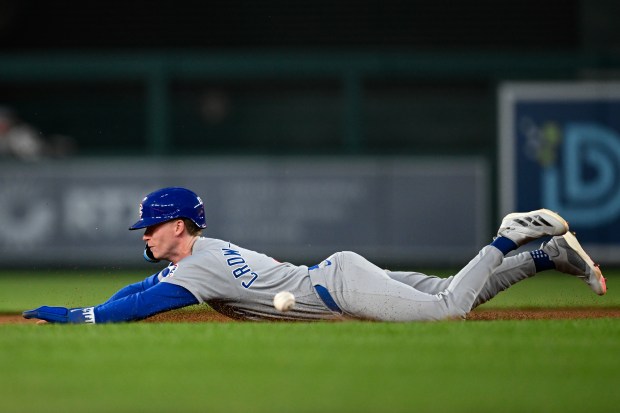Gov. J.B. Pritzker on Monday signed a measure that lays out the process for an elected school board in Chicago that begins with the city’s voters choosing 10 board members in November.
After months of debate, Illinois legislators earlier this month agreed on a plan to create a hybrid elected board before a fully-elected board is put in place in 2027. In addition to the board members elected later this year, Mayor Brandon Johnson will appoint 10 members and a president. Johnson had pushed for the hybrid model, and legislators ultimately acquiesced.
With the governor’s signature, potential candidates can begin circulating petitions March 26 for the November general election. At least 1,000 signatures from registered voters, but not more than 3,000, are required. The petitions are to be filed to election authorities from June 17 to June 24.
The board members will be elected from 10 districts, and Johnson will appoint 10 additional members as well as a board president. All 21 members would serve two-year terms.
Each of the 10 districts would be divided into two subdistricts, which in 2026 would hold elections for a fully-elected school board that would be seated in January 2027. Beginning with the 2032 general election, board seats would be up for election three times over a 10-year period, twice for four-year terms and then for a two-year term.
The new law includes maps for the 10 districts in the initial election, and also for the eventual 20 districts. That map will include seven majority-Black districts, six majority-Latino districts, five majority-white districts and two in which no group has a majority. The law also addresses ethical questions involving potential conflicts of interest among board members “considering any contract, work, or business of the district.”
Some lawmakers who expressed concerns about the hybrid model said they worried about changes related to selective enrollment schools. The school board late last year passed a resolution to prioritize neighborhood schools over a five-year period and acknowledged that selective enrollment schools have exacerbated inequities in the education system.
Pritzker on Monday expressed his support for legislation that would, among other things, prohibit the CPS board from making changes to the admissions standards of selective enrollment schools until a fully-elected board is in place in 2027.
The bill, whose main sponsor is state Rep. Margaret Croke, a Democrat from Chicago, has more than 30 co-sponsors, including House Speaker Emanuel “Chris” Welch, a Hillside Democrat who once served as an elected school board member in the near west suburbs.
“I think it would be a mistake before the people get a chance to vote all of the new members of the board of education in,” Pritzker said of allowing changes to CPS’ selective enrollment schools.
Chicago Tribune’s Olivia Olander contributed.



